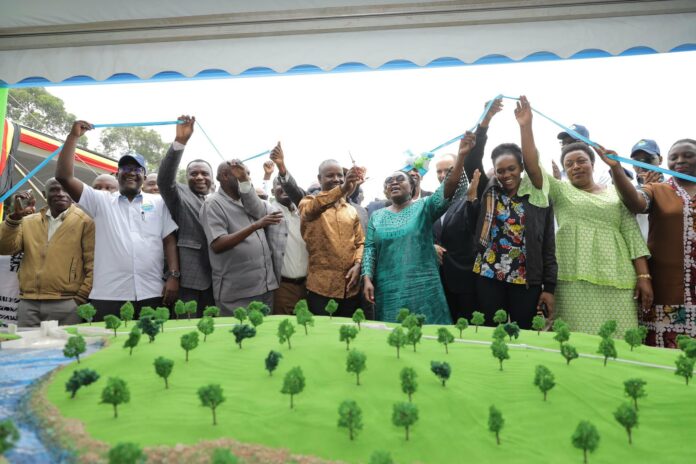By Johnson Kanyesige
Uganda and the Netherlands have commissioned the construction of four mini hydro power plants in Western Uganda, with a total investment of 13.1 million euros. Nine mini hydro power plants will be constructed in seven districts: Kasese, Bushenyi, Mitooma, Hoima, Kabarole, Bunyangabu, and Bundibugyo.
The project sites will be established on the rivers Ncwera in Mitooma, Nshongya and Igassa in Bunyangabu, Hoimo in Hoima, Wamikira in Kabarole, Nyahuka and Tikwe in Bundibugyo, Nyabyayi in Kasese, and Warugo in Bushenyi District.
The two-phased project is funded by the Orio Infrastructure Fund of the Netherlands government and co-financed by the Government of Uganda through the Uganda Energy Credit Capitalization Company (UGECCC), a government agency overseen by the Ministry of Energy.
The first phase, which includes four mini hydro power plants costing 50 billion shillings, is scheduled for completion within the next 24 months. Roy Nyamutale Baguma, the Managing Director of UECCC, said the project involves the construction of nine mini-power plants with a combined capacity of 6.7 megawatts and the establishment of a local distribution network spanning 288 kilometers within the project area.
He added that this initiative aims to connect up to 71,081 households, serving a population of 376,729 people, as well as 2,300 small and medium enterprises. While commissioning the project at Rwakitandara Playground in Mitooma District on Saturday, the Deputy Speaker of Parliament, Thomas Tayebwa, said, “With the construction of the power plants, the government will be igniting possibilities for farmers to process their produce more efficiently, local companies to thrive, and children to have better opportunities to study.”
Joost Van Ettro, the Dutch Ambassador to Uganda, said that for economic growth to be attained by a developing country, access to reliable and affordable energy is paramount for agro-processing, industrialization, education, and health. He added, “To achieve Sustainable Development Goal 7, the government must ensure access to affordable, reliable, sustainable, and modern energy for all.”
Ruth Nankabirwa, the Energy and Mineral Development Minister, emphasized the importance of encouraging value addition, job creation, and technology transfer in response to the ban on exporting unprocessed minerals.
Juliet Bashiisha, the Mitooma District Woman Legislator, expressed concern over the sub-counties of Nyaruzinga, Rurehe, Mutara, Kiyanga, and Rwoburunga in Ruhinda North County, which are rich in minerals like iron ore but either have no power or have had electric poles for over five years without any power lines.
Benon Karyeija, the chairperson of Mitooma District, lamented the poor conservation of wetlands and other water sources, stating that this has led to food scarcity in the area. Maxiimo Beinomugisha, the Bitereko Sub County Chairperson, lamented the delayed compensation for the road to the dam and asked residents to protect the tributaries of the river. He also requested that residents with the necessary skills be given priority for employment.



